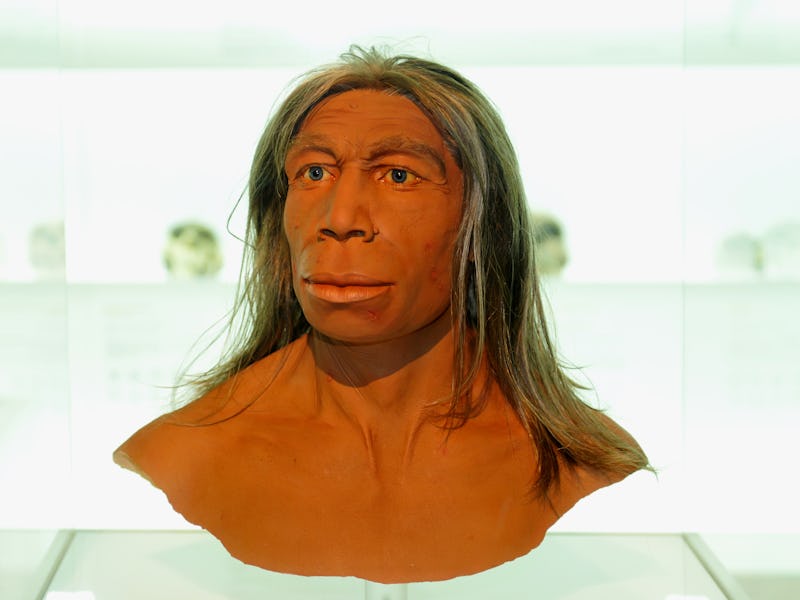Ancient stone tool rewrites a chapter of human history
"Every few years something remarkable turns up and we keep digging."

Centuries ago, as modern humans advanced across Europe, the Iberian Peninsula (made up today of Spain and Portugal), was thought to be the last residing place of the Neanderthals — their final stronghold before Homo sapiens overtook them as the last humans on Earth.
However, a study on ancient human artifacts suggests this overthrow may have occurred earlier than previously thought.
Inverse is counting down the 20 stories redefining 'human' from 2020. This is number 16. See the full list here.
A study released in September suggests Neanderthals were booted out of modern-day central Portugal by Homo sapiens about 5,000 years before researchers had previously ascertained. The giveaway? The contents of a cave in central Portugal called Lapa do Picareiro, not far from the Atlantic coast.
In the cave, the team of researchers happened upon stone tools thought to belong to modern humans. Through the carbon dating of the artifacts, it was determined that tools dated back between 41,100 and 38,100 years.
Artifacts from the Middle to Upper Paleolithic transitions levels.
These findings suggested that the modern humans’ passage to westernmost Europe from the south occurred much more quickly than previously predicted. It also hints that the two populations possibly co-existed for thousands of years.
Finally, it may also provide intel on the ultimate disappearance of the Neanderthals. The study authors reason that cold and dry periods likely resulted in smaller Neanderthal populations. As modern humans moved in, Neanderthals were replaced.
The discovery opens up new questions about the movement of modern humans — and what exactly happened to the Neanderthals.
"I've been excavating at Picareiro for 25 years and just when you start to think it might be done giving up its secrets, a new surprise gets unearthed," said lead author Jonathan Haws, a professor at the University of Louisville, in a statement.
"Every few years something remarkable turns up and we keep digging."
Inverse is counting down the 20 stories redefining 'human' from 2020. This is number 16. Read the original story here.